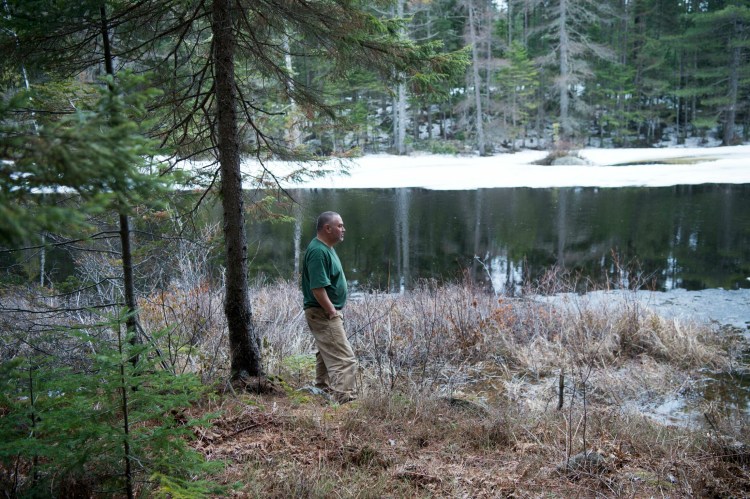Central Maine Power officials announced on Wednesday a decision not to use herbicides or pesticides in 53 miles of new transmission line corridor proposed through Franklin and Somerset counties as part of the New England Clean Energy Connect project.
“Our commitment to not use herbicides on the 53 miles of new right of way illustrates yet another positive step forward towards a significant environmental milestone created by New England Clean Energy Connect,” said Doug Herling, president and CEO of Central Maine Power, in a news release.
“With an on-going objective of continuous improvement on environmental responsibility, we operate our business in a sustainable and prudent manner, including reduction of our own carbon footprint.”
The announcement came the day before a scheduled public hearing with the Maine Department of Environmental Protection and the Land Use Planning Commission on the project, and a day after an appeal was filed challenging the Maine Public Utilities Commission’s decision to permit it.
The appeal by Nextera Energy Resources states the PUC did not adequately consider alternatives to the 145-mile power corridor and did not provide enough evidence the project would benefit Maine.
Concerns about the scenic and environmental impact, including the use of herbicides and their effect on wildlife and water bodies, have been a focal point for opponents of the contentious project.
Proposed as a means of bringing hydropower from Canada to Massachusetts, the NECEC would consist of 145 miles of new transmission line from the Quebec border to Lewiston, including 53 miles of new corridor from Beattie Township through The Forks.
Some opponents said Wednesday it’s too early to celebrate the pledge from CMP without a written commitment.
And even with the decision to eliminate herbicides in the new corridor, it’s not enough to justify the project’s construction, they said.
“This is a bit of a distraction from the larger picture, which is that this project is really bad,” said Sue Ely, a clean-energy staff attorney at the Natural Resources Council of Maine, an environmental group opposed to the project.
“They made the announcement they aren’t going to use herbicides in the new corridor, which is great; but it’s a day before the hearing and there hasn’t been a permit modification to show this is actually going to happen for the life of the project, which we would want to see before we accept it.”
Alice Elliott, chapter director for the Sierra Club of Maine, which also opposes the project, also called on CMP to put the promise in writing.
“At this point we would applaud CMP for striving to reduce or eliminate herbicide use, but if it’s not part of the written plan, we would not be able to endorse that,” Elliott said. “If it becomes part of the written plan and they can be held accountable for it, we would be thrilled to know they are moving towards a more sustainable method.”
Sandra Howard, a spokeswoman for Say NO to NECEC, a group organized around opposition to the project, said the environmental effects “certainly extend beyond the herbicide factor.”
“Blazing through a habitat that doesn’t have any large permanent structures and cutting down a massive amount of trees doesn’t help our goals in addressing climate change,” Howard said. “It feels like a bit of a deflection from the fact Nextera is appealing the PUC decision.”
CMP’s original application filed with the DEP includes plans to manage plant growth in the corridor using herbicide treatments once every four years.
However, supplemental testimony filed with the DEP and LUPC last week by the company does state they don’t plan to use herbicides in the 53 miles of new corridor and would instead use mechanical means of keeping vegetation down.
Also included in the new corridor are areas where the structures supporting the line will be higher in order to protect invertebrate and insect habitats, said Thorn Dickinson, vice president of business development for Avangrid Networks, the parent company of CMP.
A full canopy will exist in that area and there won’t be a need for as much maintenance, he said. Other areas will include a tapered tree line to help shield the project’s visual effect.
“From the beginning of the project, we’ve really committed ourselves to listening to the community and focusing on areas of concern for people the project will impact,” Dickinson said. “Herbicide was one of those questions that kept coming up, so we’ve been looking into it to see if we could offer a no-herbicide approach. It’s something we haven’t done before, so we’re excited to offer it here.”
Send questions/comments to the editors.



